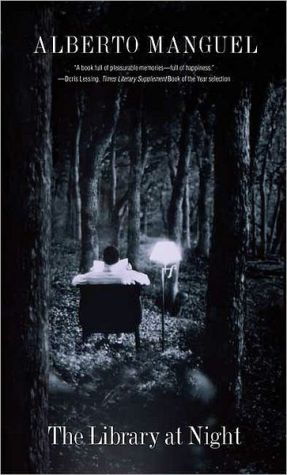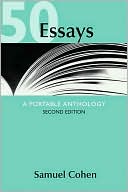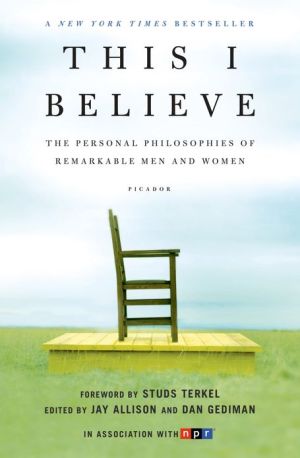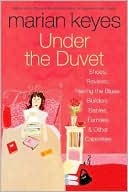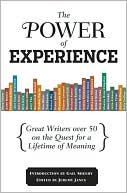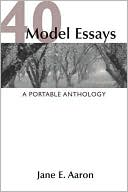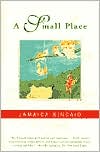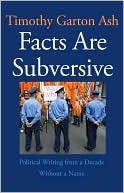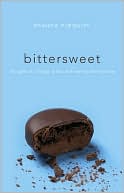The Library at Night
Inspired by the process of creating a library for his fifteenth-century home near the Loire, in France, Alberto Manguel, the acclaimed writer on books and reading, has taken up the subject of libraries. “Libraries,” he says, “have always seemed to me pleasantly mad places, and for as long as I can remember I’ve been seduced by their labyrinthine logic.” In this personal, deliberately unsystematic, and wide-ranging book, he offers a captivating meditation on the meaning of libraries.\ \...
Search in google:
Inspired by the process of creating a library for his fifteenth-century home near the Loire, in France, Alberto Manguel, the acclaimed writer on books and reading, has taken up the subject of libraries. “Libraries,” he says, “have always seemed to me pleasantly mad places, and for as long as I can remember I’ve been seduced by their labyrinthine logic.” In this personal, deliberately unsystematic, and wide-ranging book, he offers a captivating meditation on the meaning of libraries. Manguel, a guide of irrepressible enthusiasm, conducts a unique library tour that extends from his childhood bookshelves to the “complete” libraries of the Internet, from Ancient Egypt and Greece to the Arab world, from China and Rome to Google. He ponders the doomed library of Alexandria as well as the personal libraries of Charles Dickens, Jorge Luis Borges, and others. He recounts stories of people who have struggled against tyranny to preserve freedom of thought—the Polish librarian who smuggled books to safety as the Nazis began their destruction of Jewish libraries; the Afghani bookseller who kept his store open through decades of unrest. Oral “memory libraries” kept alive by prisoners, libraries of banned books, the imaginary library of Count Dracula, the library of books never written—Manguel illuminates the mysteries of libraries as no other writer could. With scores of wonderful images throughout, The Library at Night is a fascinating voyage through Manguel’s mind, memory, and vast knowledge of books and civilizations.The Barnes & Noble ReviewMy earliest experiences of interacting with a library were far from galvanic. I remember little besides my mother taking me to the Petworth Library in Washington, D.C., and speckles of her exuberance as she helped me to acquire books. If anything, my most prominent memory of those days, from when I was seven or eight, was of the library as a source of income. During one summer vacation, Mom offered me five dollars to read a book and write a report on it. As her turn to bribery signaled, my parents had some reason to fret that I might not develop into a steadfast reader. But one evening, maybe a year later, my father drove me to the home of his best friend. The room we sat in felt consecrated to books in an altogether more awesome fashion than what I d encountered at the public library.
Night which Pagan Theology could make the daughter of Chaos, affords no advantage to the description of order.\ Sir Thomas Browne, The Garden of Cyrus\ \ The library in which I have at long last collected my books began life as a barn sometime in the fifteenth century, perched on a small hill south of the Loire. Here, in the last years before the Christian era, the Romans erected a temple to Dionysus to honour the god of this wine-producing area; twelve centuries later, a Christian church replaced the god of drunken ecstasy with the god who turned his blood into wine. (I have a picture of a stained-glass window showing a Dionysian grapevine growing out of the wound in Christ’s right side.) Still later, the villagers attached to the church a house to lodge their priest, and eventually added to this presbytery a couple of pigeon towers, a small orchard and a barn. In the fall of 2000, when I first saw these buildings which are now my home, all that was left of the barn was a single stone wall that separated my property from a chicken run and the neighbour’s field. According to village legend, before belonging to the barn, the wall was part of one of the two castles that Tristan L’Hermite, minister of Louis xi of France and notorious for his cruelty, built for his sons around 1433. The first of these castles still stands, much altered during the eighteenth century. The second burnt down three or four centuries ago, and the only wall left standing, with a pigeon tower attached to its far end, became the property of the church, bordering one side of the presbytery garden. In 1693, after a new cemetery was opened to house the increasing number of dead, the inhabitants of the village (“gathered outside the church doors,” says the deed) granted the incumbent priest permission to incorporate the old cemetery and to plant fruit trees over the emptied tombs. At the same time, the castle wall was used to enclose a new barn. After the French Revolution, war, storms and neglect caused the barn to crumble, and even after services resumed in the church in 1837 and a new priest came to live in the presbytery, the barn was not rebuilt. The ancient wall continued to serve as a property divider, looking onto a farmer’s field on one side and shading the presbytery’s magnolia tree and bushes of hydrangea on the other.\ As soon as I saw the wall and the scattered stones around it, I knew that here was where I would build the room to house my books. I had in mind a distinct picture of a library, something of a cross between the long hall at Sissinghurst (Vita Sackville-West’s house in Kent, which I had recently visited) and the library of my old high school, the Colegio Nacional de Buenos Aires. I wanted a room panelled in dark wood, with soft pools of light and comfortable chairs, and an adjacent, smaller space in which I’d set up my writing desk and reference books. I imagined shelves that began at my waist and went up only as high as the fingertips of my stretched-out arm, since, in my experience, the books condemned to heights that require ladders, or to depths that force the reader to crawl on his stomach on the floor, receive far less attention than their middle-ground fellows, no matter their subject or merit. But these ideal arrangements would have required a library three or four times the size of the vanished barn and, as Stevenson so mournfully put it, “that is the bitterness of art: you see a good effect, and some nonsense about sense continually intervenes.” Out of necessity, my library has shelves that begin just above the baseboards and end an octavo away from the beams of the watershed ceiling.\ While the library was being built, the masons discovered two windows in the old wall that had been bricked up long ago. One is a slim embrasure from which archers perhaps defended Tristan l’Hermite’s son when his angry peasants revolted; the other is a low square window protected by medieval iron bars cut roughly into stems with drooping leaves. From these windows, during the day, I can see my neighbour’s chickens hurry from one corner of the compound to another, pecking at this spot and at that, driven frantic by too many offerings, like demented scholars in a library; from the windows on the new wall opposite, I look out onto the presbytery itself and the two ancient sophora trees in my garden. But at night, when the library lamps are lit, the outside world disappears and nothing but this space of books remains in existence. To someone standing outside, in the garden, the library at night appears like a vast vessel of some sort, like that strange Chinese villa that, in 1888, the capricious Empress Cixi caused to be built in the shape of a ship marooned in the garden lake of her Summer Palace. In the dark, with the windows lit and the rows of books glittering, the library is a closed space, a universe of self-serving rules that pretend to replace or translate those of the shapeless universe beyond.\ During the day, the library is a realm of order. Down and across the lettered passages I move with visible purpose, in search of a name or a voice, summoning books to my attention according to their allotted rank and file. The structure of the place is visible: a maze of straight lines, not to become lost in but for finding; a divided room that follows an apparently logical sequence of classification; a geography obedient to a predetermined table of contents and a memorable hierarchy of alphabets and numbers.\ But at night the atmosphere changes. Sounds become muffled, thoughts grow louder. “Only when it is dark does the owl of Minerva take flight,” noted Walter Benjamin, quoting Hegel. Time seems closer to that moment halfway between wakefulness and sleep in which the world can be comfortably reimagined. My movements feel unwittingly furtive, my activity secret. I turn into something of a ghost. The books are now the real presence and it is I, their reader, who, through cabbalistic rituals of half-glimpsed letters, am summoned up and lured to a certain volume and a certain page. The order decreed by library catalogues is, at night, merely conventional; it holds no prestige in the shadows. Though my own library has no authoritarian catalogue, even such milder orders as alphabetical arrangement by author or division into sections by language find their power diminished. Free from quotidian constraints, unobserved in the late hours, my eyes and hands roam recklessly across the tidy rows, restoring chaos. One book calls to another unexpectedly, creating alliances across different cultures and centuries. A half- remembered line is echoed by another for reasons which, in the light of day, remain unclear. If the library in the morning suggests an echo of the severe and reasonably wishful order of the world, the library at night seems to rejoice in the world’s essential, joyful muddle.
\ Michael DirdaThe Library at Night—a series of essays on what one might call the Platonic Idea of a library—reveals some of its author's intellectual range and magpie learning. Manguel can cite ancient scholars from Alexandria, tell anecdotes about half-mad bibliomanes…describe the bookshelves in the blind Borges's apartment, analyze the architecture of Florence's Laurentian Library (designed by Michelangelo), outline the various methods for organizing and cataloging books, and discuss the sad history of censorship or the tattered and secret volumes shared by the prisoners in Nazi concentration camps. The man has clearly, as Samuel Johnson might say, turned over half a library to make his new book…a richly enjoyable book, absolutely enthralling for anyone who loves to read and an inspiration for anybody who has ever dreamed of building a library of his or her own.\ —The Washington Post\ \ \ \ \ Library JournalThis is a book for those who delight in books and libraries. In 15 evocative essays, Manguel (A History of Reading), an Argentine-born writer and editor now living in France, explores the world of words, books, libraries, literature, and imagination. Libraries serve as his focal point as he weaves together quotations, memories, biography, mythology, and illustrations. In the chapter "Libraries as Shape," the reader encounters details of stone masonry, images of a brain-shaped library juxtaposed with the first known floor plan of a monastery library, a history of reading room architecture, and snippets of biographies of Pope Clement and Michelangelo pulled together with wit and provocative insights. In "Libraries as Oblivion," the author explores the notion of books read and forgotten alongside descriptions of libraries lost to war and destruction and readers lost through discrimination and denial of access. This is not standard library history, and its strength lies not in the details but in the connections, in the lyrical web pulling together odd bits into new ways of seeing the universe of books, readers, authors, and libraries. Published originally in Canada in 2006, this U.S. edition deserves a wide readership. Recommended for most libraries and any librarian needing a reminder of the power of connections.\ —Jan Blodgett\ \ \ \ Globe and Mail“In a good book, certain passages stand out because they are well written. In a great book, nothing stands out because nothing can. The Library at Night is one of those great books.”—The Globe and Mail\ \ \ \ \ \ Chicago Tribune"Alberto Manguel . . . the Argentine-born author and bibliophile celebrates books as brothers, as crucial companions for a lifetime."—Julia Keller, Chicago Tribune\ — Julia Keller\ \ \ \ \ \ The Buffalo News"[A] deliciously rich and lavishly illustrated book of books. . . . [A] magical book."—Jeff Simon, The Buffalo News (Editor''s Choice)\ — Jeff Simon\ \ \ \ \ \ BookForum"Manguel has assembled thumbnail biographies, entertaining anecdotes, close readings, and photographic documentation into a kind of commonplace book stitched together by his amiable prose. . . . The Library at Night . . . communicates the joy and the solace of being yourself a reader."—Brian Sholis, BookForum\ — Brian Sholis\ \ \ \ \ \ New York Sun"In The Library at Night, Alberto Manguel . . . lovingly explores the nooks and crannies of this enchanted domain. To call Mr. Manguel a ''bookman'' would be the grossest of understatements. He lives and breathes books."—Eric Ormsby, New York Sun\ — Eric Ormsby\ \ \ \ \ \ Washington Post Book World"Alberto Manguel has brought out a richly enjoyable book, absolutely enthralling for anyone who loves to read and an inspiration for anybody who has ever dreamed of building a library of his or her own."—Michael Dirda, Washington Post Book World\ — Michael Dirda\ \ \ \ \ \ Wilson Quarterly"The success of The Library at Night is the product of a mind made by reading, and the realization of its own essential argument: The library is a mirror in which we find ourselves and our world reflecting and interpenetrating."—Matthew Battles, Wilson Quarterly\ — Matthew Battles\ \ \ \ \ \ The Observer"Books jump out of their jackets when Manguel opens them and dance in delight as they make contact with his ingenious, voluminous brain. He is not the keeper of a silent cemetery, but a master of bibliographical revels."—Peter Conrad, The Observer\ — Peter Conrad\ \ \ \ \ \ New Orleans Times-Picayune"To read this book is to be invited into a world in which books are both, luxury and necessity, destiny and serendipity, to experience that sweet moment when the world falls away and we are left along with the words on the page."—Susan Larson, New Orleans Times-Picayune\ — Susan Larson\ \ \ \ \ \ Miami Herald"A vivaciously erudite justification for society''s inexorable efforts to collect, order and store information. . . . Book lovers will luxuriate in these earnest and impressively researched pages."—Christine Thomas, Miami Herald\ — Christine Thomas\ \ \ \ \ \ The Atlantic.com". . . a pleasure—especially at this time of . . . internet related uncertainty for libraries. For those . . . who are distressed by the amnesia of the Web, this book is . . . an excellent example of how to rejuvenate the past and continue its conversations."—Ben Carlson, The Atlantic.com\ — Ben Carlson\ \ \ \ \ \ New York Review of Books“A bold undertaking . . . meditative, questing, and essayistic. . . . Manguel takes the broad sweep that his subject demands. He is a humane and judicious commentator whose wide reading is matched—something not always the case—by broad sympathies. . . .The Library at Night remains a remarkable book—remarkable above all for its openness to the possibilities that books hold out, and for the passion with which it tries to instill the same attitude in its readers.”--John Gross, New York Review of Books\ — John Gross\ \ \ \ \ \ Papers of the Biliographical Society of America"Like Montaigne''s essays and Borges''s fables, Manguel''s ruminations on libraries are inviting, discursive, learned, playul, and imaginative."--Michael J. Ryan, Papers of the Biliographical Society of America\ — Michael J. Ryan\ \ \ \ \ \ Allen Kurzweil"In my personal library of imaginary places, and more specifically on the bookcases near my desk, I maintain a shelf reserved for brilliant readers. There's rarely any turnover. Borges, Calvino, Benjamin and Zweig (plus a few other steadfast patrons). With Manguel's The Library at Night, that will clearly have to change."—Allen Kurzweil, author of The Grand Complication and A Case of Curiosities\ \ \ \ \ \ Chicago Tribune"Alberto Manguel . . . the Argentine-born author and bibliophile celebrates books as brothers, as crucial companions for a lifetime."—Julia Keller, Chicago Tribune\ \ \ \ \ The Buffalo News"[A] deliciously rich and lavishly illustrated book of books. . . . [A] magical book."—Jeff Simon, The Buffalo News (Editor's Choice)\ \ \ \ \ BookForum"Manguel has assembled thumbnail biographies, entertaining anecdotes, close readings, and photographic documentation into a kind of commonplace book stitched together by his amiable prose. . . . The Library at Night . . . communicates the joy and the solace of being yourself a reader."—Brian Sholis, BookForum\ \ \ \ \ New York Sun"In The Library at Night, Alberto Manguel . . . lovingly explores the nooks and crannies of this enchanted domain. To call Mr. Manguel a 'bookman' would be the grossest of understatements. He lives and breathes books."—Eric Ormsby, New York Sun\ \ \ \ \ Washington Post Book World"Alberto Manguel has brought out a richly enjoyable book, absolutely enthralling for anyone who loves to read and an inspiration for anybody who has ever dreamed of building a library of his or her own."—Michael Dirda, Washington Post Book World\ \ \ \ \ Wilson Quarterly"The success of The Library at Night is the product of a mind made by reading, and the realization of its own essential argument: The library is a mirror in which we find ourselves and our world reflecting and interpenetrating."—Matthew Battles, Wilson Quarterly\ \ \ \ \ The Observer"Books jump out of their jackets when Manguel opens them and dance in delight as they make contact with his ingenious, voluminous brain. He is not the keeper of a silent cemetery, but a master of bibliographical revels."—Peter Conrad, The Observer\ \ \ \ \ New Orleans Times-Picayune"To read this book is to be invited into a world in which books are both, luxury and necessity, destiny and serendipity, to experience that sweet moment when the world falls away and we are left along with the words on the page."—Susan Larson, New Orleans Times-Picayune\ \ \ \ \ Miami Herald"A vivaciously erudite justification for society's inexorable efforts to collect, order and store information. . . . Book lovers will luxuriate in these earnest and impressively researched pages."—Christine Thomas, Miami Herald\ \ \ \ \ The Atlantic.com". . . a pleasure—especially at this time of . . . internet related uncertainty for libraries. For those . . . who are distressed by the amnesia of the Web, this book is . . . an excellent example of how to rejuvenate the past and continue its conversations."—Ben Carlson, The Atlantic.com\ \ \ \ \ New York Review of Books“A bold undertaking . . . meditative, questing, and essayistic. . . . Manguel takes the broad sweep that his subject demands. He is a humane and judicious commentator whose wide reading is matched—something not always the case—by broad sympathies. . . .The Library at Night remains a remarkable book—remarkable above all for its openness to the possibilities that books hold out, and for the passion with which it tries to instill the same attitude in its readers.”--John Gross, New York Review of Books\ \ \ \ \ \ Papers of the Biliographical Society of America"Like Montaigne's essays and Borges's fables, Manguel's ruminations on libraries are inviting, discursive, learned, playul, and imaginative."--Michael J. Ryan, Papers of the Biliographical Society of America\ \ \ \ \ The Barnes & Noble ReviewMy earliest experiences of interacting with a library were far from galvanic. I remember little besides my mother taking me to the Petworth Library in Washington, D.C., and speckles of her exuberance as she helped me to acquire books. If anything, my most prominent memory of those days, from when I was seven or eight, was of the library as a source of income. During one summer vacation, Mom offered me five dollars to read a book and write a report on it. As her turn to bribery signaled, my parents had some reason to fret that I might not develop into a steadfast reader. But one evening, maybe a year later, my father drove me to the home of his best friend. The room we sat in felt consecrated to books in an altogether more awesome fashion than what I'd encountered at the public library. \ Kenneth's bookcases dwarfed me. They also spanned the full length of a wall; however, what caused my mind to reel was that there were books -- mostly science fiction and fantasy -- on top of, and in front of others. Tickled to see us gawk at his assembly, Kenneth related that sometimes he'd start a book or buy one, then later realize that he'd read it or owned it. The overflow of the contents, and Kenneth's personal connection toward his library, stirred my self-regard and altered my worldview. This experience, one might hypothesize, inducted me into a truth that's crucial to Alberto Manguel's impassioned, wide-ranging book The Library at Night. That is, we should be cautious in representing libraries as static, essentially alike places, which are differentiated solely by the makeup and arrangement of their contents.\ While The Library at Night glosses the development of library culture from antiquity to the present, its outlook is more contemplative than historical. Loosed from the barriers of chronological presentation, the book's aim is to thicken our awareness of the scores of ways that these reservoirs of the mind may be experienced. Exercising the focus of a naturalist in the wild, Manguel is receptive to how something as ordinary as the time of day one repairs to a library can guide one's encounter therein. Hence, the title of the book is not plainly decorative.\ In the autumn of 2000, Manguel surveyed a wall -- the remnants from a 15th-century barn, which stood sentry on a hill, south of the Loire River in France. It would come to be incorporated into the personal library the Argentinean-born writer would commission to have built on that site. He writes:\ The library I had imagined for my books, long before its walls were erected, already reflected the way in which I wished to read. There are readers who enjoy trapping a story within the confines of a tiny enclosure; others for whom a round, vast, public space better allows them to imagine the text stretching out towards far horizons; others still who find pleasure in a maze of rooms through which they can wander, chapter after chapter. I had dreamt of a long, low library where there would always be enough darkness around the pools of light on the desk to suggest that it was night outside, a rectangular space in which the walls would mirror one another and in which I could always feel as if the books on either side were almost at arm's length. I read in a haphazard way, allowing books to associate freely, to suggest links by their mere proximity, to call to one another across the room. The shape I chose for my library encourages my reading habits.\ Earlier in the book Manguel notes, "If the library in the morning suggests an echo of the severe and reasonably wishful order of the world, the library at night seems to rejoice in the world's essential, joyful muddle."\ For Manguel, the seeds of bibliomania sprouted early. From the age of seven or eight, he took pleasure in rearranging his books according to sets of different principles. One day he might group them by shape, on another by color, language, or subject matter. A salient attribute of The Library at Night's composition is that its brief, personal sketches are hemmed with heaps of erudite chestnuts. For example, he observes that the diarist Samuel Pepys had pedestals made to bring his smaller books into line with the larger ones. And that the French writer Valéry Larbaud had his volumes "bound in different colours according to the language in which they were written... 'His sickroom was a rainbow,' said one of his admirers, 'that allowed his eye and his memory surprises and expected pleasure.' " Manguel's wide range of reference is striking; even those readers who aren't academics or writers will be tempted to consult the book's bibliography.\ Now if the author restricted himself to praising the means that people have fussed over their books, and the wondrous vessels they have built for cultural transmission (such as "the largest encyclopedia ever printed: the Qinding Gujin Tushu Jicheng, or Great Illustrated Imperial Encyclopedia of Past and Present Times, of 1726, a gigantic biographical library divided into more than ten thousand sections"), his efforts would likely cut a pallid figure. But this is not the case; The Library at Night is not lost in a professorial cloud that floats solely on its bonhomie.\ The book is also cheeky, combative, and politically aware: Manguel mocks those "oafish personalities who demand to be portrayed against the background of a book-lined wall, in the hope that it will grant them a scholarly lustre." He reviles a proponent of microfilming who opined, "The value in intellectual terms, of the proximity of the book to the user has never been satisfactorily established," saying, "There speaks a dolt, someone utterly insensitive, in intellectual or any other terms, to the experience of reading." He devotes similar skeptical energy to the manner in which U.S. presidents and other powerful men have used the founding of libraries to aggrandize themselves, and reflects upon the destruction and founding of libraries for hegemonic purposes.\ Intermittently, Manguel's effusions get the best of him. His remark that his books "hold between their covers every story I've ever known and still remember..." appears unlikely. Editing should also have retouched his notice that in Islamic societies, in the Middle Ages, the oral dissemination of a text was often championed "because the text then entered the body through the mind and not merely through the eyes," since, obviously, the mind is as capable of wandering during a lecture as it is while reading a sentence on a page. But the most questionable sections of the book revolve around the use of the Internet.\ While Manguel happily acknowledges the Internet's usefulness as a tool for information retrieval, he can be somewhat shrill in his denunciations of it:\ By offering electronic users the appearance of a world controlled from their keyboard...multinational companies have ensured that, on the one hand, users will not protest against being turned into consumers, since they are supposedly "in control" of cyberspace; and that, on the other hand, they will be prevented from learning anything profound, whether about themselves, their immediate surroundings or the rest of the world.\ While the Internet has allowed businesses to monitor the activities of their customers to a frightening degree, the implication that heavy Internet users are less likely to commit to challenging intellectual works is, perhaps, a bit overstated. Surely, one does not need to distribute a questionnaire to know that the Web has allowed numerous, innately curious people to deepen their engagement with the world. (Consider, for example, the number of hits that The New York Review of Books receives per month in proportion to its number of paid subscribers.)\ But Manguel is no technophobe: "Being a cosmopolitan today may mean being eclectic, refusing to exclude one technology for the sake of another." Indeed, if he comes across as a touch strident in his characterization of the Web, it's because he's zealous in his admonition that we be responsible caretakers of our paper-encoded heritage -- a gallant fault if there ever was one. All told, The Library at Night is a fascinating book that makes one yearn for an un-rankled insomnia. --Christopher Byrd\ Christopher Byrd is a writer who lives in New York. His reviews have appeared in publications such as The American Prospect, The Believer, Guardian America, The Washington Post, The San Francisco Chronicle, and The Wilson Quarterly.\ \ \
